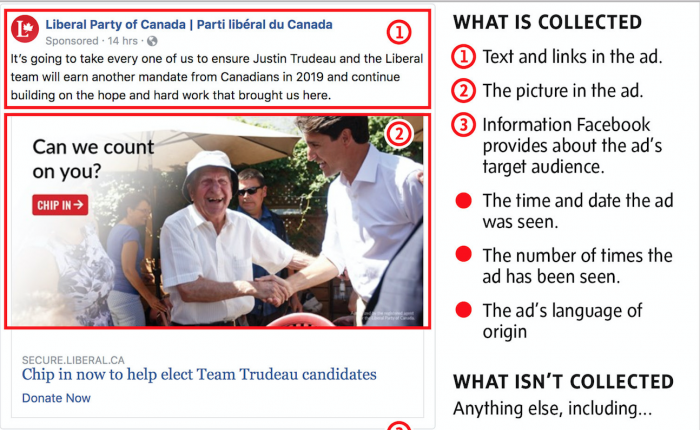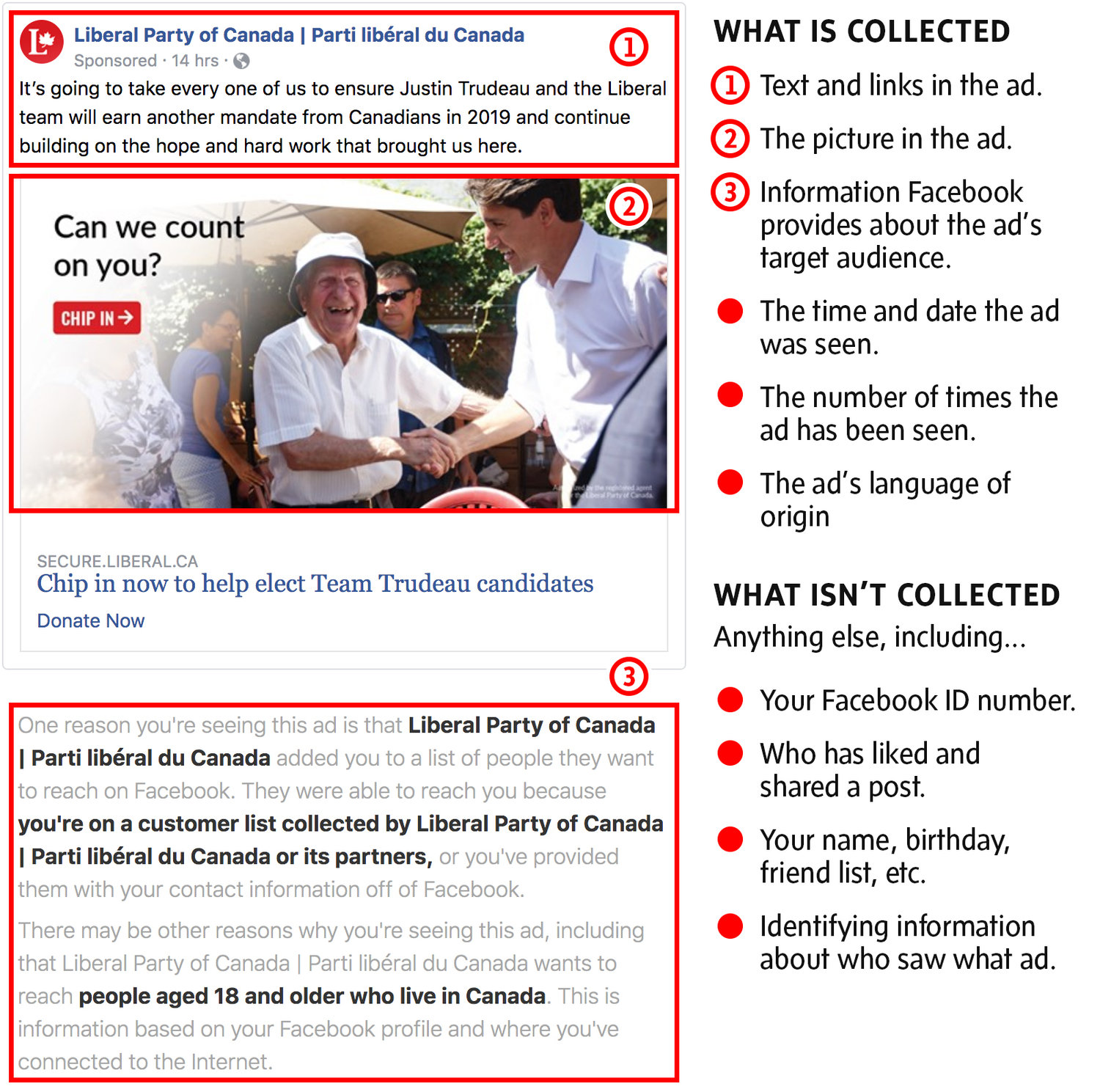
The Globe and Mail is the new home to the Facebook Political Ad Collector, a browser extension that ProPublica built and released in 2017. As Julia Angwin and Jeff Larson — names that are familiar to you if you’ve been following The Markup … thing — wrote at the time:
The tool is a small piece of software that users can add to their web browser (Chrome). When users log into Facebook, the tool will collect the ads displayed on the user’s news feed and guess which ones are political based on an algorithm built by ProPublica.
One benefit for interested users is that the tool will show them Facebook political ads that weren’t aimed at their demographic group, and that they wouldn’t ordinarily see.
ProPublica used to the tool to supplement reporting around the German federal elections and the U.S. midterms. Facebook didn’t like the tool, urged ProPublica to shut it down, and then earlier this year made a change that broke the Political Ad Collector and some other tools like it.
Now, however, the tool is up and running again and under the ownership of the Globe and Mail, which says it will make it available to any legitimate news organization that wants to use it. (The Globe and Mail was also one of ProPublica’s partners using the tool last year.)
“We’re thrilled to give the project such a good home,” said Scott Klein, ProPublica’s deputy managing editor. “Existing users around the world can expect their add-on to continue working and shouldn’t notice much of a change.” The Globe has also added support for collection of ads in over 100 languages.
“Canada’s in an interesting place right now. Our Parliament recently passed a set of new election rules that start to define how political ads online have to be logged — one of the first laws of its kind in the world,” said Tom Cardoso, the data journalist at the Globe and Mail who is overseeing the project. “It’s going to be interesting to see the practical implications of this stuff play out: What is issue advertising? When does something become political? Anyone who says they can tell you what a political ad is with 100-percent accuracy is probably wrong…Our effort here is to understand what political speech looks like in Canada, when it comes to advertising.”

Cardoso said that it wasn’t particularly hard to get the tool to work again after Facebook first blocked it, but “it’s totally possible that the tool will once again be broken.” He noted, too, that Facebook’s ad markup changes frequently, partly as a way to try to trick ad blockers. Regardless, the tool is at least up and running for now, and the Globe and Mail will use it to bolster its coverage of the Canadian federal elections this fall.
“Obviously, you’re never going to capture all of the ads that are actually being put on Facebook. You have to find a representative sample,” Cardoso said. “I think the Globe is lucky in some ways in that it attends to attract people from different audiences and walks of life across Canada — but we’re aware that if we just advertise [the tool] on our site and Twitter, we’re not going to get the volume necessary, we’re not going to get a diverse-enough audience. If we get one person in Yukon, it’s not enough; we need multiple people.
“We’re looking at partnerships, hoping that other Canadian media organizations will promote the tool. We’re also looking at buying Facebook ads because Facebook is a great way to target people. Yes, it’s kind of hilarious that we’d be using Facebook to help keep ads transparent on Facebook.”
The extension is desktop-only and you can download it for Firefox here and for Chrome here.